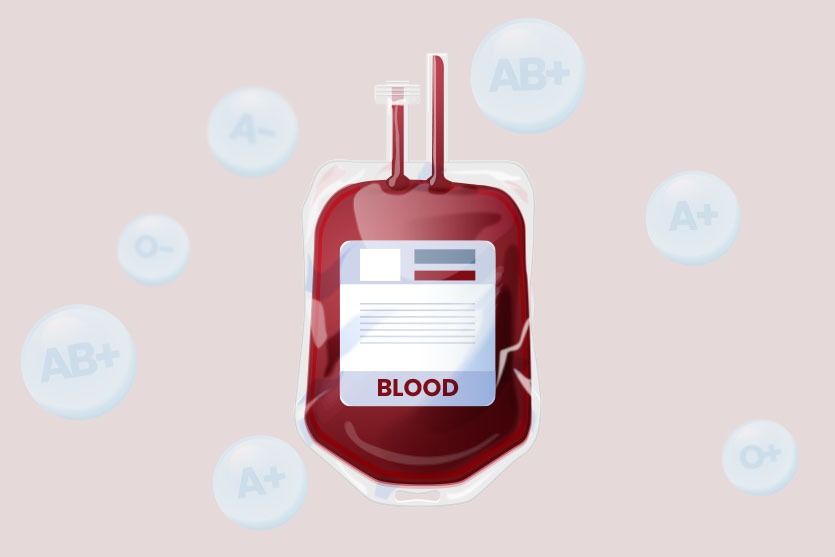
Understanding blood types: How do they impact donation, transfusion, and healthcare?
Rare blood types constitute a small portion of blood diversity, yet they pose significant challenges for individuals who possess them. These blood types are a source of health and medical concern, as their rarity may lead to difficulties in accessing necessary medical care in emergency situations, complicating matters during surgeries or childbirth.
Rare blood types require special attention and concerted efforts to ensure the availability of blood required by individuals in need. Moreover, raising awareness about the significance of blood donation and effective communication with medical centers and blood banks highlight the importance of meeting the needs of individuals carrying these rare blood types.
Therefore, it is imperative to understand the challenges faced by those with rare blood types and work towards enhancing awareness and support for these individuals to ensure adequate and appropriate healthcare provision.
What are Blood Type Diseases?
Several disorders and diseases are associated with rare blood types. Some relate to blood type reactions with specific blood kinds, while others are linked to health issues concerning the immune system or medical impacts upon receiving blood transfusions. Among these diseases are:
- Thrombocytopenia: Acute reduction in platelet count can lead to clotting and bleeding issues.
- Hemolytic-uremic syndrome: Involves red blood cell breakdown, kidney problems, and low platelet count.
- Coagulation reactions: In some cases, reactions between patient and donor blood types can cause severe clotting.
- Neonatal Hemolytic Disease: Occurs when the fetus has a different blood type from the mother, leading to the destruction of fetal red blood cells.
- Immune disorders: Rare blood types may trigger specific immune responses during blood transfusions, leading to health problems.
These are some conditions that may be associated with rare blood types. Each case must be handled cautiously based on individual patient needs and circumstances.
Disorders and Challenges
Rare blood types pose health challenges due to their rarity, meaning individuals with these types may encounter difficulties in meeting their medical needs. Rare blood types, such as AB-, AB+, O-, and O+, which are less common, are known to face specific challenges:
- Difficulty in finding suitable blood banks: Due to the scarcity of these types, some blood banks may lack sufficient quantities, making blood acquisition challenging in emergency situations.
- Pregnancy and childbirth: Sometimes, if both parents have rare blood types, the possibility of having a child with an even rarer blood type increases, requiring specialized medical care during pregnancy and childbirth.
- Surgery and medical treatments: Certain surgical procedures or treatments might require large amounts of blood, and the unavailability of sufficient quantities of the rare type can pose a challenge for the patient.
- Awareness and communication: Raising awareness about the importance of blood donation and communication with blood banks are vital to ensure the availability of rare blood types to meet individuals’ needs.
Challenges of rare blood types depend on the medical infrastructure in each region and how healthcare is provided. Promoting awareness and encouraging blood donation can play a significant role in improving access to blood and providing necessary healthcare for individuals in need.
Comprehensive Aspects of Rare Blood Types: From Genetics to Social Awareness and Medical Advancement
- Genetics and Heredity: Blood types are genetically determined, and having a rare blood type could be due to inheritance from parents. Specific gene interactions lead to the emergence of rare blood types.
- Psychological and Social Health Challenges: Individuals with rare blood types may face psychological and social challenges, such as anxiety about future healthcare or difficulty finding necessary medical resources.
- Medical Technology and Scientific Research: Ongoing medical research in rare blood types aids in better understanding their interactions and associated health issues, potentially leading to the development of new treatments and technologies.
- Social Role and Public Awareness: Awareness about blood donation importance and communication with blood banks significantly contribute to providing blood for those in need. Social support and community involvement can alleviate psychological stress for individuals facing challenges due to their rare blood types.
- Healthcare Policies and Health Services: Countries and healthcare institutions are working on developing policies and programs to support individuals with rare blood types and ensure the availability of necessary medical care.
Is there a Cure for Rare Blood Diseases?
Unfortunately, not all rare blood diseases have a specific or curative treatment, but ongoing developments in research offer available treatments. Treatments vary based on the type and cause of each disease, and individual cases need to be evaluated to determine the best possible options.
Some treatments include:
- Blood and Platelet Transfusion: Blood transfusion can be used to treat some disorders of rare blood types, especially when there is a shortage of platelets or red blood cells.
- Medication: In some cases, medication is used to control immune system reactions or reduce specific complications associated with blood disorders.
- Bone Marrow Transplant: In diseases like sickle cell anemia, bone marrow transplant could be an option for disease treatment.
- Genetic Therapy: Some research and advancements focus on genetic treatments targeting specific genetic problems associated with rare blood types.
- Comprehensive Care and Symptom Management: In many cases, comprehensive care, medical, and psychological support can help alleviate symptoms and improve quality of life.
Collaborating with specialized hematologists is crucial to determine the optimal treatment for individual cases. Advancements in medicine and scientific research pave the way for new treatment options and future interventions that could effectively address rare blood diseases.
Conclusion
Considering rare blood types as a vital part of medical diversity, understanding the challenges faced by individuals with these types is a fundamental step toward providing comprehensive and suitable healthcare for them. From genetics to medical technology, these blood types are a source of scientific research and future medical advancements. Societies need ongoing awareness about blood donation and solidarity to ensure the necessary blood supply for those dependent on it. Through collective efforts, we can provide the necessary support and healthcare for individuals living with rare blood types, contributing to improving their quality of life and health.









Aliyah2225
April 25, 2025Awesome https://lc.cx/xjXBQT
Freddie1150
April 28, 2025Good https://rb.gy/4gq2o4
Brooke377
April 29, 2025Good https://is.gd/N1ikS2
Kenneth4118
April 30, 2025Good https://is.gd/N1ikS2